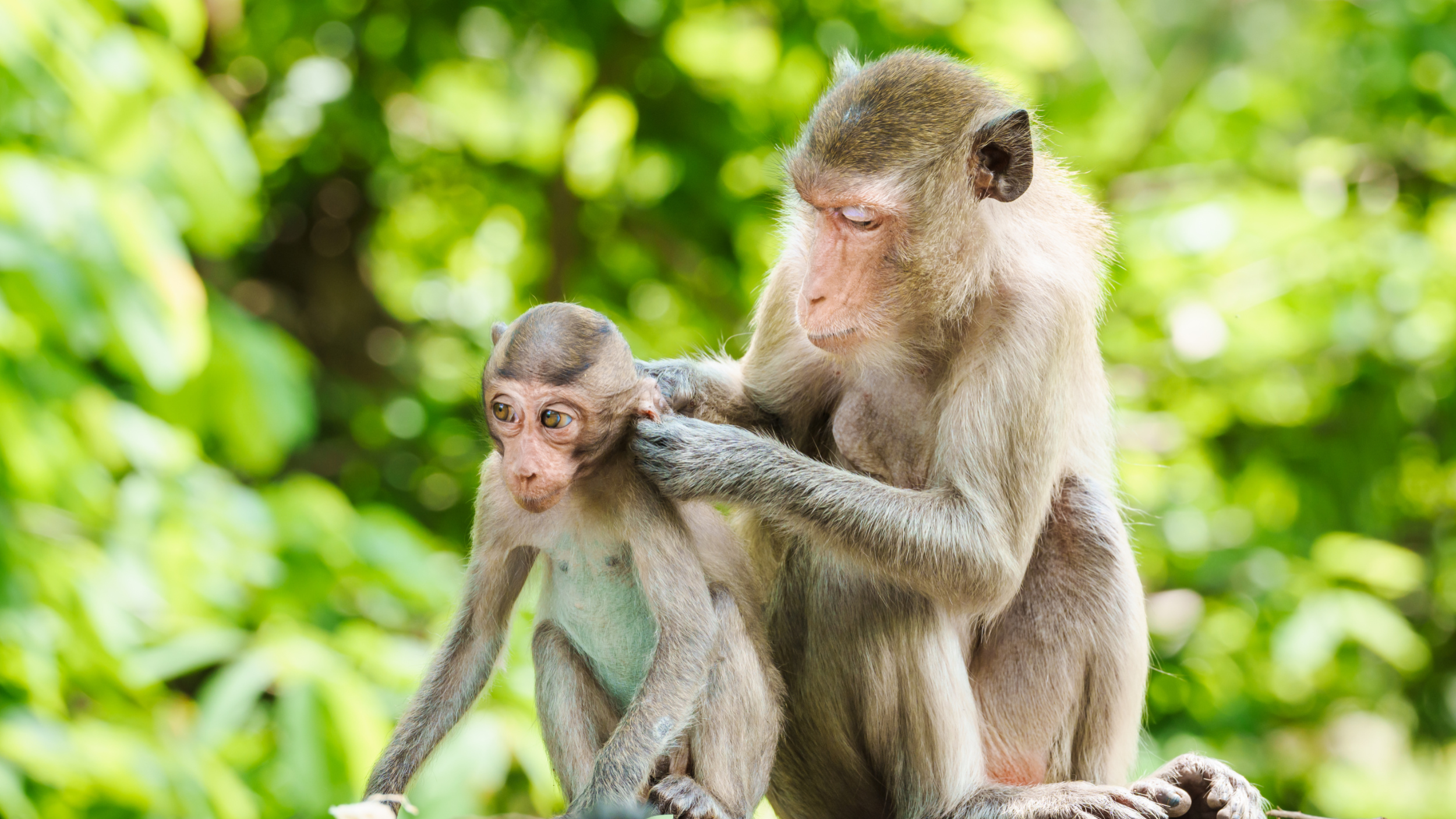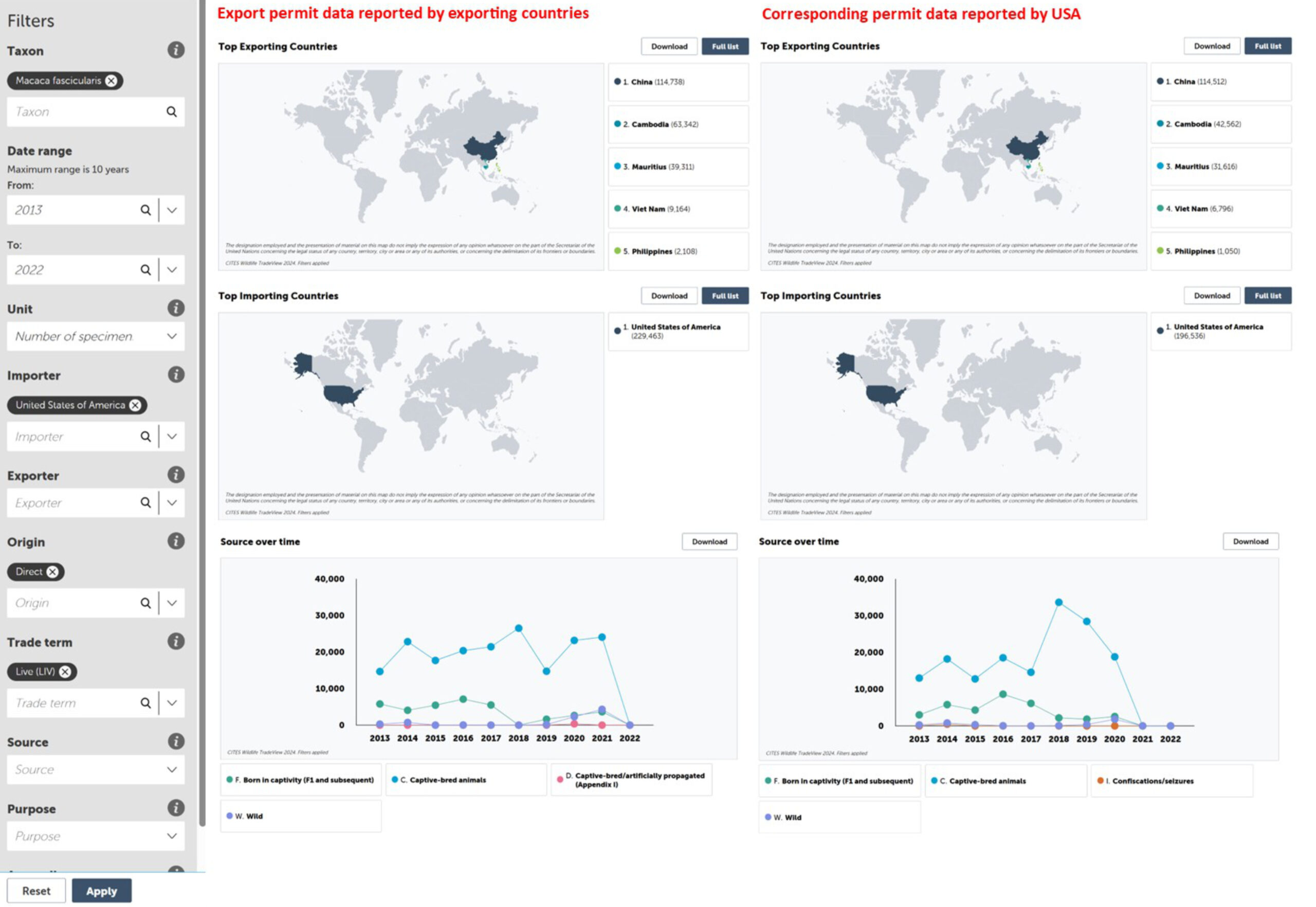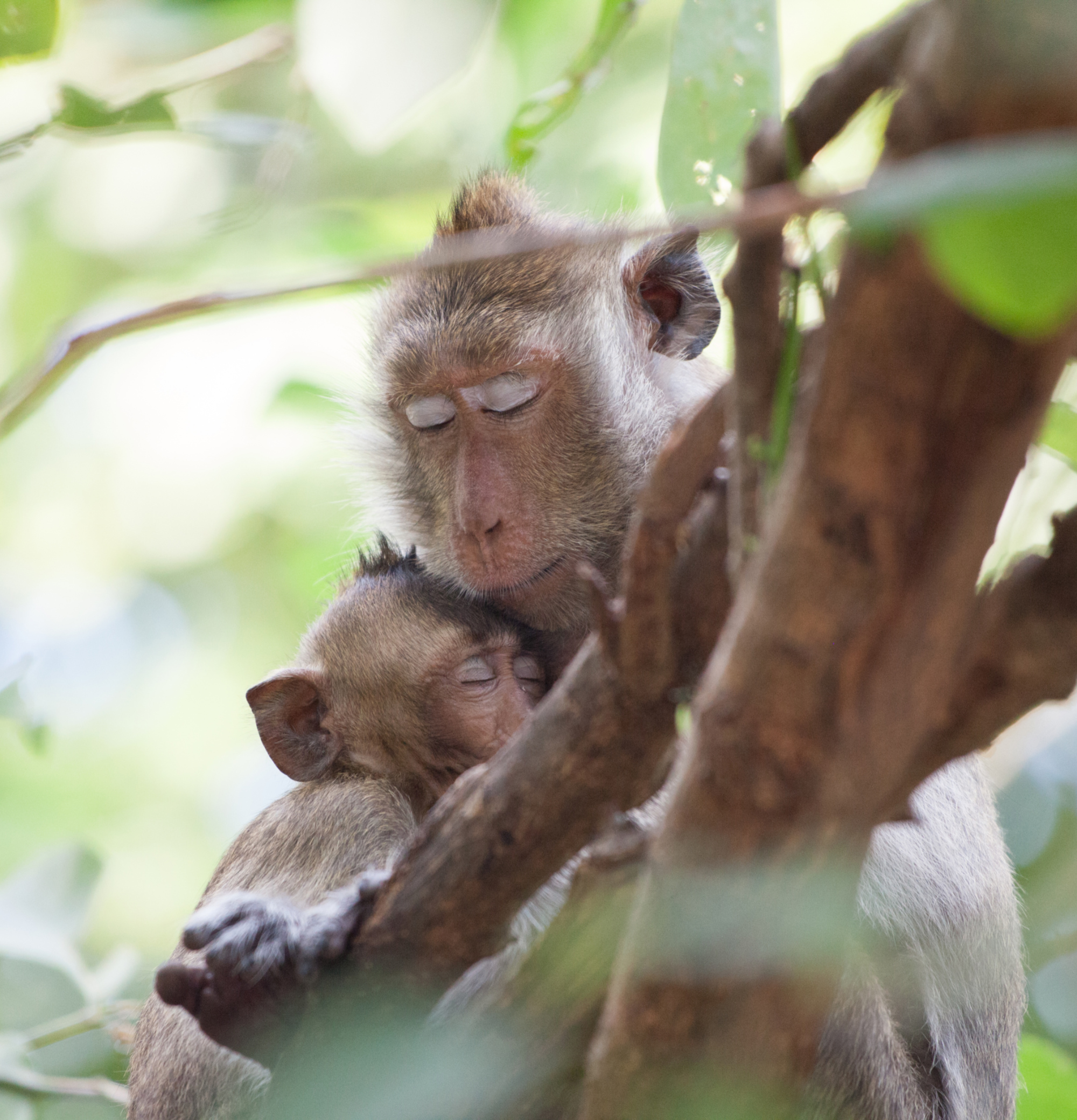
The 2023 BBC investigation, The Monkey Haters, which exposed the torture of baby macaques for the online viewing pleasure of sadistic people worldwide, provides a window on a world which profits from a trade in wild species and its light-touch regulation.
The legal wildlife trade has been called one of the most lucrative trades in the world, yet most trade has no regulation at all. Only for around 40,000 species is trade regulated, on paper at least. But with the CITES trade permit processes stuck in the 1970s, the reality is this trade is managed with the technological equivalent of the 3M Post-It Note launched in 1977 (CITES launched in 1975).
CITES trade regulation can’t cope with a modern global trade environment. And, like most regulators, CITES has been undermined since the 1980s. Today it is impoverished to the point of being useless and this has left one of its key processes, the trade permit system, unfit-for-purpose. Given this mess, it should come as no surprise that the system can be gamed, aiding the ease with which illegally harvested macaques are being laundered into the global supply chain destined for medical research labs.
The CITES paper permit system makes it impossible to distinguish the legal from the laundered. Watching the horrific video footage of how macaques are captured from the wild, there are few signs of empathy. In this first step of this tragic value chain, tiny babies cling to their mothers as their parents fight to protect them. You can’t help but wonder if these newborns will become the leftovers, too small to be of immediate use in pharmaceutical research. The opaque regulatory system blurs the lines between the legal, the laundered and the leftovers till it is impossible to trace the point the traded become the trafficked or the tortured.
Macaques aren’t only in the news because of The Monkey Haters investigation, but also because of a shortage of numbers available to the pharmaceutical industry for drug testing. Two recent articles by Erika Fry in Fortune Magazine provide an insight into the unhealthy addiction statistics of America’s biopharmaceutical industry. Firstly, the industry is valued at $586 billion, which hints at the enormous influence it wields and the addiction to profits. One article says, “Without the long-tailed macaque, says the National Association of Biomedical Research, 53% of the 19,742 drugs and biologics currently in development may never make it to market”. Long-Tailed Macaques are used as test subjects in the development of drugs to treat pain, cancer, depression, high cholesterol, and high blood pressure.
What is interesting about the many recent articles discussing the shortage of macaques is that no one questions why the US pharmaceutical industry alone has 19,742 drugs and biologics currently in development? Shouldn’t these figures trigger questions about the greed of the pharmaceutical industry or the levels of research which appear to have broken free of any moral foundation? Such conversations seem long overdue, given the history.
In 1976, Henry Gadsden, then CEO of Merck told Fortune Magazine that, “The problem we have had is limiting the potential of drugs to sick people. We could be more like Wrigley’s Gum… it has long been my dream to make drugs for healthy people. To sell to everyone”. Step forward to 1991 and Pfizer CEO, Bill Steere Jr, reportedly listed his top three priorities for the company were 1. Getting marketing and research closer together, 2. Getting marketing and research closer together and 3. Getting marketing and research closer together.
As the debate over the shortage of Long-Tailed Macaques continues, the discussion must be broadened to ask if the scale of 19,742 drugs and biologics currently in development is because they are genuinely needed, or if this tragic trade in primates is in place to fulfill Henry Gadsden’s dream and Bill Steere Jr’s priorities? Are the wealthy of the global North over-diagnosed and over-medicated? Is it fair to say the industry has already succeeded in both quests? Add to this the ongoing debate about not only the ethics of animal testing but its validity or necessity, then there is much to consider.
If in the desperation to live longer (even forever) we aren’t yet prepared to have these ‘big’ discussions, then we need to have some ‘smaller’ ones. Namely, why is a trade which is so valuable, so poorly regulated to the point the lack of supply chain transparency makes it impossible to trace where the legal becomes the laundered or the leftovers?
An article by Tracy Keeling for the Ecologist Magazine reporting on the trade in macaques into the UK detailed how difficult it was to reconcile CITES export/import permits. In the article, the Long-tailed Macaque Project’s Malene Hansen said, “The discrepancy level is through the roof,”, continuing, “We are trying to monitor here but we actually don’t know exactly what’s going on.”.
Born Free’s head of policy, Mark Jones said, “There always seem to be huge discrepancies between export and import data in these kinds of transactions”, continuing, “If the data the UK is collecting does not enable meaningful trend analysis, you have to wonder what its purpose is.”.
But this poor-quality data isn’t only a UK problem, the US is the biggest importer of long-tailed macaques, with other major buyers including the EU and Japan. Trade in macaques into the USA is similarly problematic.

Using the CITES TradeView website, the trade between 2013 and 2022 of ‘live’ Long-tailed Macaques shows some significant discrepancies. In total, over this period the USA reported it imported 196,536 Long-tailed Macaques, while exporting countries data states a total of 229,463 were exported to the USA, a discrepancy of 32,927 primates.
Setting aside for a moment the ethics of this trade, the scale of the export/import discrepancies, justifiably described as “through the roof”, show the most basic accounting reconciliations cannot be done. But this is a known issue for trade under CITES. Documentation problems leading to confiscations of imports at the US boarder aren’t new either.
Research showed that between 2003 and 2013, thousands of exotic leather goods were seized by U.S. law enforcement because of discrepancies in CITES paperwork. While this research was related to the fashion industry, with Ralph Lauren accounting for 29% of the seized items, Gucci (16%), Michael Kors (10%), Jil Sander (6%), and Coach (5%), obviously this pricked the nerve of other industries reliant on CITES listed species to maintain their profits.
But this didn’t lead to a modernisation of the CITES trade permit system, which was first discussed in 2002. Instead, this led to companies lobbying the US government to redact company names in any Freedom of Information Act (FOIA) requests by those investigating this CITES listed trade in wild species. Undoubtedly companies realised that having their brands linked to reports of these confiscations could be detrimental to their reputations. So, together with submissions from the fashion and exotic pet industries, needless to say pharmaceutical companies lobbied hard under the guise of ‘in confidence’ exemptions.
Declarations were made by companies including Charles River Laboratories, Bristol-Myers Squibb and Novartis all professing commercial harm from the disclosure of confidential information which impacts the companies research activities or otherwise gives competitors insight into the companies’ research and development. Additional declarations were made by Covance Laboratories, Tandem Labs, AbbVie, Alnylam Pharmaceuticals, Boehringer Ingelheim Pharmaceuticals, SNBL USA, Genetech etc. I am sure you get the picture. The Obama government gave these companies what they wanted, another layer behind which to hide.
It is too easy to say that evil prevails when good people do nothing, these systemic problems are too big and profitable for individuals and groups to challenge. Evil prevails when there are too few regulations and too few resources are in place to keep business and industry behaviour corralled and in-check. And, in the end, given trade is a key driver of biodiversity loss and pandemic risk, you could argue the public’s ‘right to know’ trumps ‘commercial in confidence’.
While governments of the world joined forces to deal with zoonotic diseases, those that spill over from wildlife into humans, they have done nothing to tackle the root cause, the exploitation of wildlife for profit.
As Simon Schama, professor of history and art history at Columbia University, New York, wrote in The Guardian, “The years since 1980 have seen outbreaks of new infections at a rate of one every eight months in hot zones from Brazil to central Africa to south-east Asia, most of them viral. They include the catastrophes of HIV and Ebola, as well as Sars and H5N1 bird flu. The routinisation of long-distance trade in animals has speeded up the pace of these contagions.”
As a result of the pandemic and, in turn, more donations to medical research, the trade in primates for the pharmaceutical industry has increased. A study by the University of Adelaide, stated the trading of macaques for research purposes could be increasing the chance of further pandemics. The researchers analysed the CITES Trade Database from 2000 to 2020 and found less than a third of the records about trade shipments of macaques contained both importing and exporting data. When there is no transparency, why should we be shocked that some people exploit the trade system for the worst kind of profiteering?
One author of the University of Adelaide study said, “Of most concern were the trade discrepancies reported between 2019 and 2020, when Cambodia significantly increased its exports of macaques, while China ceased all its exports,” ; China is traditionally one of the largest suppliers of macaques. China’s biopharma companies grew explosively between 2016 and 2021; their combined value on major stock exchanges rose from just $5 billion to $400 billion during that period, according to consulting firm McKinsey. They also began running far more clinical trials.
There have been ample warning signs that thousands of wild-caught monkeys are being illegally certified as captive-bred and used in clinical trials for new drugs and vaccines. The arrest of the director of wildlife and biodiversity for Cambodia’s Ministry of Agriculture, Forest, and Fisheries, in November 2022 as he transited through the US on his way to the CITES CoP19 in Panama, is just another symptom highlights the scale of the systemic problems of wildlife trade regulation. He was charged with smuggling wild primates and remains under house arrest, awaiting trial.
This example alone shows how just how little has been learnt from the global pandemic, namely:
- A pandemic the world’s leading epidemiologists have been expecting because they knew that humans are vulnerable because the line between us and exotic animals had long been breached for legal trade purposes.
- Which is driving up the legal ‘harvesting’ for the trade of primates to the pharmaceutical industry, as they increase research to prepare for the next pandemic.
- And, as a result, exposing people to stressed and immune-compromised primates, increasing the risk of the next pandemic.
I hear you saying, but if business and industry are doing the right thing and only buying from the legal trade what’s the problem? A 2020 survey and report into green crime in company supply chains found of the business respondents who admitted they knew about environmental crime, a substantial 65% know or suspect that third parties they conduct business with may have been involved in a range of illegal, environmentally damaging activities. Only 16% of respondents say that they would report a third-party breach externally; no one is telling the necessary authorities. And, 63% of respondents agree that the economic climate is encouraging organisations to take regulatory risks in order to win new business.

Given the horror of what is happening, and if the trade is not banned, what should the pharmaceutical industry do?
- It could cover the cost of modernising the CITES trade permit system, which is only around US$30million, pocket change to the pharmaceutical giants. This would help overcome the export/import discrepancies outlined in research and reports, and help decouple the legal and illegal trade. But no, the industry hasn’t dug into its US$586 billion to make a contribution of US$30 million to modernise the trade monitoring system globally.
- They could pay a 1% levy on retail profits of pharmaceuticals to help resource the regulators to ensure the supply chain is transparent and traceability can be done in real time; 1% is hardly onerous for such a profitable industry, right? Negotiations in the lead up to the CBD Post 2020 Global biodiversity Framework made it clear that the pharmaceutical industry didn’t want to cut into their mindboggling profits, leading to what some interpret as biopiracy.
What the industry has done instead is in June 2023, the National Association for Biomedical Research (NABR) filed a petition with the International Union for Conservation of Nature (IUCN) challenging the designation of the long-tailed macaque (Macaca fascicularis) as endangered under IUCN listing criteria. The petition calls for an immediate review of the classification. In the petition, the NABR states, “This is particularly troubling because arbitrary actions like this make life-saving medical research even more difficult to conduct in the U.S. and other countries.”. There are many monitoring the decline in species who would say these actions are far from arbitrary. NABR have expanded this petition in recent days.
While the NABR challenges the IUCN saying its assessment “does not provide actual evidence of species decline”, it has invested nothing to ensure the pharmaceutical industry’s use of macaques is sustainable, legal, or indeed safe for human health. The fact that this petition was filed in the US may go some way to explain why only two countries have not signed up to the Convention on Biological Diversity, the USA and the Vatican.
Industry will never voluntarily call for better trade regulation. If we choose to believe the cruelty inflicted on the world’s non-human species, endangered, exotic and farmed, seen through the small keyhole of The Monkey Haters, to be the result of a small group of ‘bad apples’ taking pleasure in the torture of animals, then we are playing into the hands of bad business practices. Are we ready to unlock and throw the door wide open on what is really happening?
And, while great quality medical research is needed now and in the future, is it time to consider the overdiagnosis and overtreatment of the ‘worried well’. At the extreme end, with the people who are trying to live forever, should the world support research into pills and potions to achieve a goal of living to 150 or 200 years of age? A balance must be discussed, so humans don’t become an even greater parasite than they are currently on wildlife, ecosystems, and the planet.

